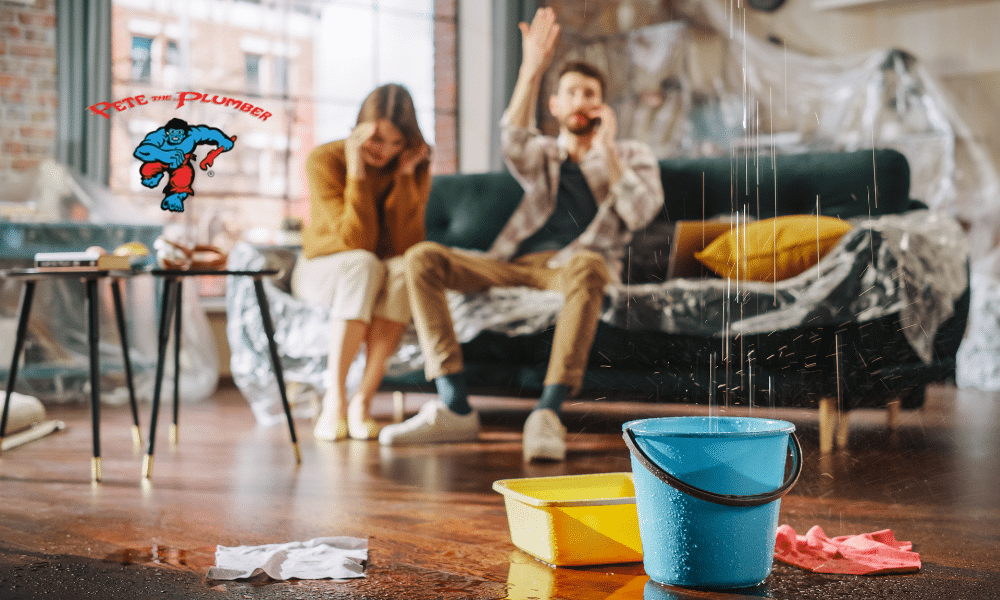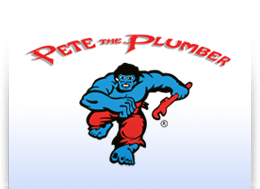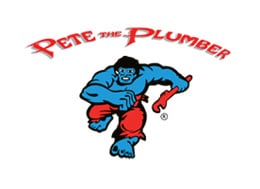
A question that every Calgary homeowner needs to confront at some point is how to prevent burst pipes as the winter temperatures drop.
Temperature swings are notorious for causing frozen pipes in homes—and we all know about plummeting temperatures in Calgary winters.
What can you do to prevent the disaster of a burst pipe and water damage to the home during the coldest periods this winter? Read on for the best tips and advice.
Why is fall plumbing care important?
Neglecting plumbing maintenance is asking for trouble in Calgary homes. Costly repairs, water damage, discomfort during the coldest periods—no homeowner wants to deal with these issues.
Why pipes freeze
Temperatures that fall well below zero for an extended period are tough on a home’s plumbing system. As water freezes, it expands. This causes huge pressure inside the pipe, which can crack or burst if the pressure is too much. When the ice thaws, water leaks and significant damage can result.
Plumbing maintenance in the fall
Unless you take some precautions, each fall in preparation for the lower temperatures, pipes can burst, requiring emergency repairs and potentially causing significant water damage to your home.
Not only does plumbing maintenance protect your home and prevent emergency issues, but it also ensures that the plumbing system maintains efficiency throughout the winter.
How to tell if your pipes are frozen
It’s important to check pipes regularly when temperatures drop and to take precautionary measures if you intend to be away from home for a period. Ideally, by monitoring the situation, you can spot the early warning signs and prevent a disaster in the home.
So, before we cover a few tips to prevent burst pipes, the main warning signs of frozen pipes are:
- Weak water flow: if water pressure drops significantly and the taps only dribble out water when you turn them on, the pipes may be freezing or already frozen.
- Bulging pipes: with the expansion of water when it turns to ice, it may cause your pipes to bulge noticeably.
- Gurgling sounds: pipes emitting gurgling, banging or clanging sounds may have ice travelling through them. This is a warning sign that your pipes can become completely frozen if the low temperatures persist.
- Frost/condensation on the pipes: another sure sign of a potential frozen pipe problem is a visible layer of condensation or frost on the pipes or small cracks.
- Unusual smells: a strange smell from the drains in your home could indicate an ice-related blockage.
These warning signs are red flags. Contact a plumber as soon as possible to prevent damage to your home.
Tips to prevent frozen pipes
Prevention is always better than a cure. So, what can you do in the fall to prevent frozen pipes in the coming winter months?
Having your plumbing checked by a professional once a year is advisable—and it makes sense to schedule this in the fall, because preparations for winter’s freezing temperatures can be made, including inspection for leaks and ensuring properly insulated piping.
Pipes located in basements, attics, garages or crawl spaces are especially liable to freeze in sub-zero temperatures because of a lack of heating in these areas. These pipes should be wrapped with insulation sleeves; foam pipe covers or heating tape for protection.
Caulking and weatherstripping windows, doors, and walls will not only save on energy bills but also help protect the pipes from freezing. Pay attention to wall areas where pipes enter your home, as these gaps can let in ice-cold air that contributes to pipes freezing.
Even if you’re away from home, set thermostat temperatures at a minimum of 15°C. This may seem like an extravagance or waste of energy but burst pipes or water damage will cost far more.
Keep the doors of the kitchen and bathroom sink cabinets open, so that warm air can circulate around the pipes and keep them from freezing.
Before extremely cold weather arrives, allowing taps to drip a little helps “move water” and prevent freezing in the pipes.
Pipes outside the home are susceptible to freezing and bursting. So, it’s best to remove garden hoses from outdoor faucets, store them for the winter, turn off the water supply, and drain the remaining water to prevent problems.
What to do if your pipes freeze?
Homeowners may not be able to prevent pipes from freezing. However, you can prevent a serious problem from turning into a disaster. Frozen pipes can wreak havoc in the home if they burst, so here’s what to do if your pipes are frozen:
- Cut off the main water supply to prevent flooding in case the pipe bursts.
- Keep the cold and hot water faucets running to slowly unfreeze the pipes.
- Raise the thermostat temperature in the home to increase warmth.
- For more urgent thawing, gently heat the frozen pipe section with a hairdryer, heating pad or warm towels (do not use open flames or blowtorches, which can damage the pipe).
- Call a licensed plumber to troubleshoot if you cannot unfreeze the pipe, are unsure of the cause or to prevent pipes from bursting.
What to do if a pipe bursts in your home
With burst pipes, the first thing to do is to cut off the main water supply leading to the pipe. This will prevent any additional water from causing damage to your home.
Then, urgently call a licensed plumber to fix the issue. For insurance purposes, take plenty of pictures of the burst pipe and any damage caused to the home or its contents.
How to keep your plumbing safe in winter and fall
Longer-term strategies to keep your plumbing safe throughout the coldest months of the year in Calgary include upgrading outdoor faucets to frost-proof models, relocating especially vulnerable pipes to warmer parts of the home, using smart technology to detect leaks or sense temperature drops, and scheduling regular plumbing maintenance.
If you’re in Calgary, our licensed professional plumbers can help you resolve all common plumbing problems. Call Pete the Plumber at (403) 257-1766 to arrange a visit.

